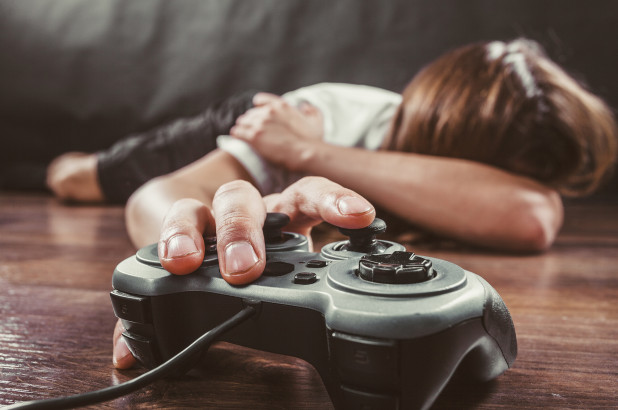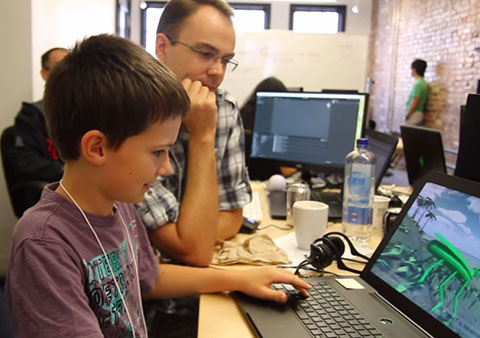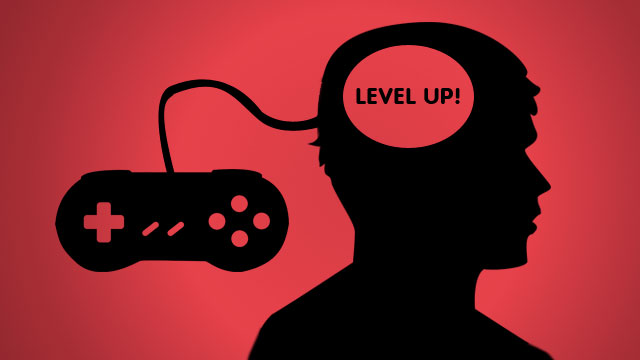Computer games have been around for decades now, and they have only gotten more advanced and popular as time has passed. In these times computer games are mainstream and the people who don’t play games are quickly becoming the minority.
With the rise of so many computer games, how can this affect our society? In this blog post I will be discussing some of the major changes concerns that computer games pose

Concerns with gaming addictions
You see it in the headlines all the time, but not without merit. Computer games pose serious concerns for the health, social skills and other factors for a large portion of our society. Computer games can become very addictive hobbies for many, leading to lack of exercise or general socialising, since all their time is spent alone, moving their fingers and wrists at most.
The lack of exercise from time spent playing games is a large contributing factor to the unhealthiness of our generation, with more time spent playing and not enough exercising or eating healthily. There is also the factor of isolation at play, generally gaming addicts won’t get out and socialise much. Instead they’d much rather connect to friends online, through gaming platforms such as Steam, or the Playstation Network. Whilst being able to connect with friends online does boast some merits, it is not a suitable substitute for physical and emotional interaction between two humans in real life. Nothing ever will be, its in our psychological makeup.
Playing games can lead to other issues such as skipping days at school/work, either intentionally so you can stay off and play games, or unintentionally if you perhaps went to sleep too late after playing games all night, then woke up extremely late. There are even some serious health conditions that come from extended play sessions over periods of months and years, as would be the case with a gaming addict. Most common examples of health issues include carpel tunnel syndrome, problems with vision, Musculoskeletal disorders and obesity

Educational and health benefits
Whilst there are serious threats to gaming and its addictive qualities, games are not inherently bad. In fact some of the very first computer games to be created were educational games. for example The Oregon Trail designed in 1971 by teachers to teach kids “about the realities of 19th-century pioneer life on the Oregon Trail“.
Games can teach us things in many ways, both as physical skills and by teaching knowledge. Some games teach better hand-eye coordination skill, one of the main skills needed to play, and taught by, rhythm games. With the many different games out there, there is surely a game to train most parts of you body, if you want to learn how to move your feet better and perhaps even become a dance, why not try dance dance revolution? If you don’t feel like moving your whole body so much, and only want to train your hand eye coordination and reflexes then perhaps OSU! is for you.
As well as physical benefits that can be gained from playing games, there are also education games as well as plain and simple games that include education elements to them. It can be something as simple as a game set in a historical period, being accurate and faithful to what we know about that time period. Playing the game can give you a sense of what it is like living in that time, in a way that no amount of reading books or watching lectures can teach you about.
Some games focus solely on teaching, and incorporate some sort of fun mechanic to create a game that will hook kids into playing, essentially tricking them into learning as they are having fun whilst they learn. These sorts of games can range from basic teachings for primary school children, up to expert teachings of any kind of topic, the possibilities are endless. The only thing limiting how much these types of games go is the amount of resources put into creating them, a poorly made game might not entice anyone to play it, meaning no learning is done; or worse may provide incorrect learning, making the players knowledge even worse off than before
Another form of healthy games are brain training games, which often use puzzles and other various techniques to get your brain ticking. This can prove extremely beneficial for anyone, especially elderly people, as just a few minutes of mental workout will help keep your mind in a healthy shape.
Psychological factors

Many studies have been been conducted on the psychological effect of gaming especially on young children. Many believe that children who play violent video games have higher tendencies to become violent people as they grow up. Whilst no studies have found any direct correlations between playing violent video games and the nature of the child as they grow up, some studies have shown that they promote negative traits in children. Such as a lack of self control, a decrease in moral values (as most violent games actively engage in immoral activities such as murdering, stealing, destroying property etc) and emotional desensitization; the more a child is exposed to violent and other negative behaviors, the more they become desensitized, to the point where they can even believe that violence and other similar tendencies are normal in every day life.
Use of sound
Games also make use of realistic sounds and music to fully immerse the players into the game. This gives the psychological effect of making the player feel like they are really in the world of the game. Different genre of games use different sounds to fit the atmosphere of what they are playing, for example with a sports game such as FIFA they will use upbeat music and the sound of thousands of fans chanting, to give an energy to the atmostphere. This will get the player in the same mood as if they were at a real football match, making the game more immersive and therefore more addictive. Another example is in horror games, such as Outlast. In this genre of game, silence and other ominous noises can be used as well as loud bang noises to produce jump scares. These all feed into the atmosphere again creating a terrifying gaming experience for the player.
Peer pressure
There is a lot of peer pressure surrounding this generation concerning gaming, especially with kids and students. Gaming is currently one of the most, if not the most popular hobby between younger people. The social pressures of liking the same things as your peers in school/college often lead to kids feeling like they need to purchase the newest gaming consoles and games in order to keep up. Not only does this incur a heavy financial penalty (consoles and games are not cheap!) going up to even £400 just for the console; but it also it leaves people feeling like they have to always be up to date with the current games.
Game companies have in recent years also increased the connectivity between games, almost every game produced now will have some form of online multiplayer. This constant connection between people is a familiar feeling felt from the social media craze where everybody is plugged into their social media all the time, nothing is private anymore everything is shared online. Having games feature online elements causes more pressure to play the same thing as your friends, as they will be playing together and if you don’t join in you will be the odd one out.